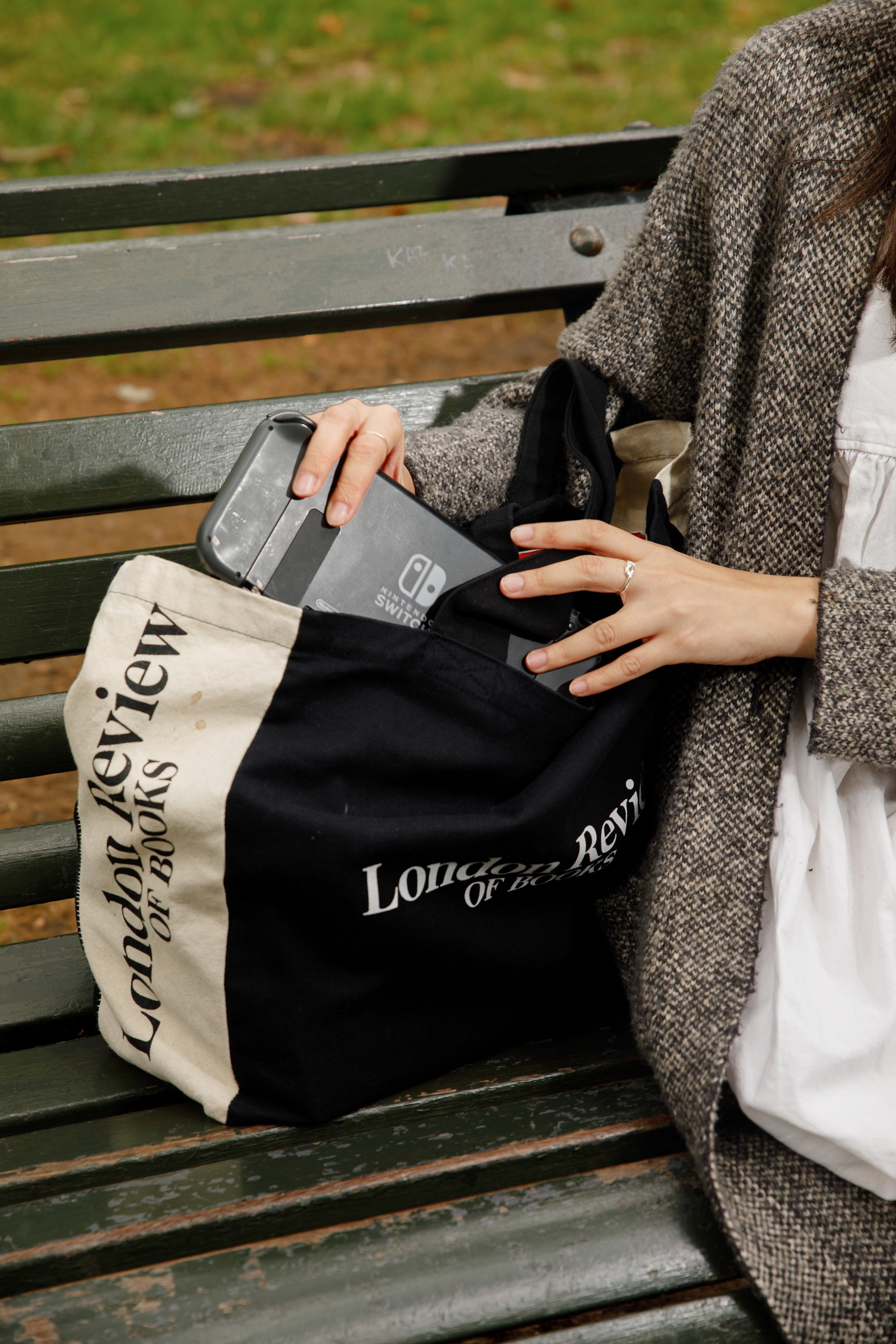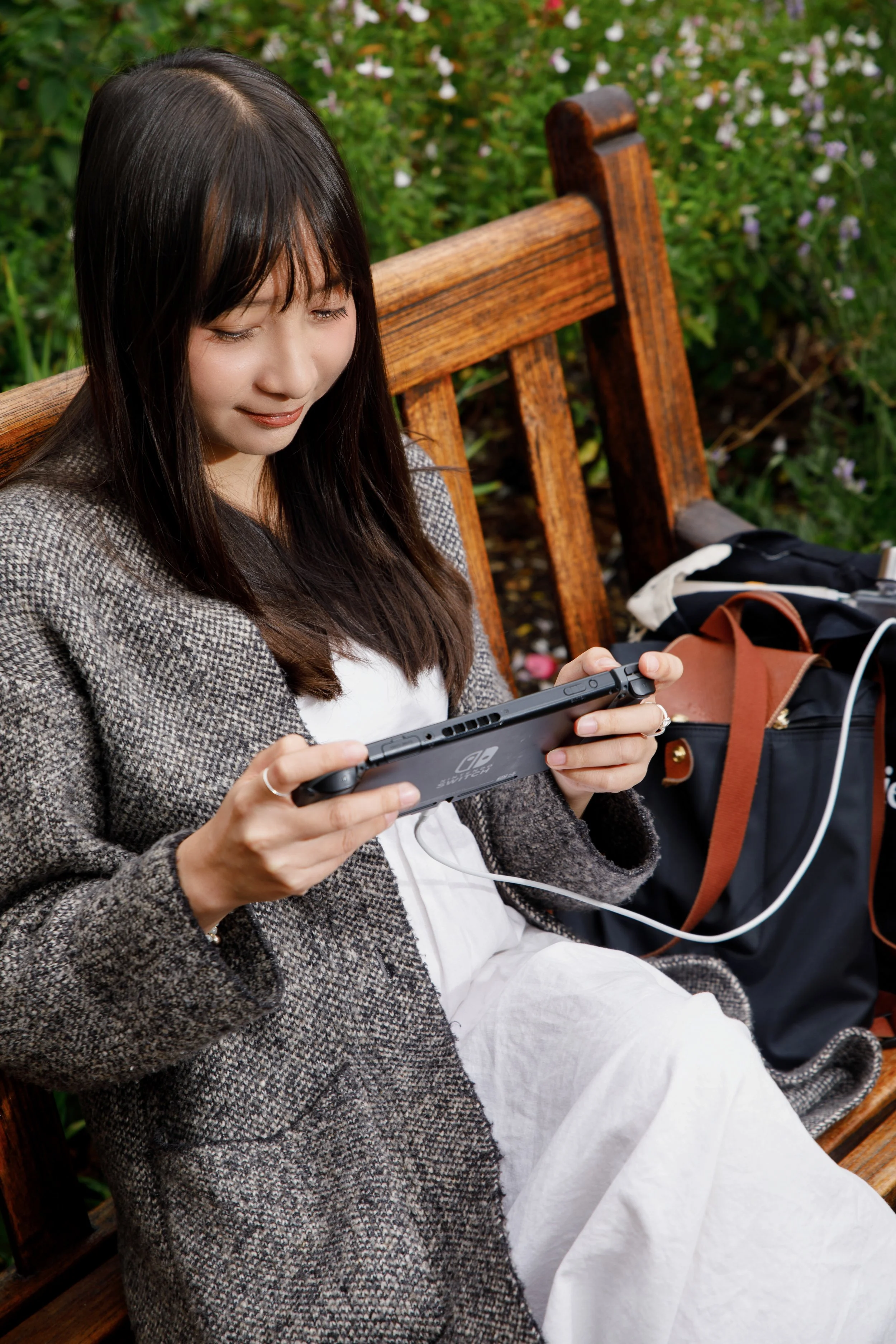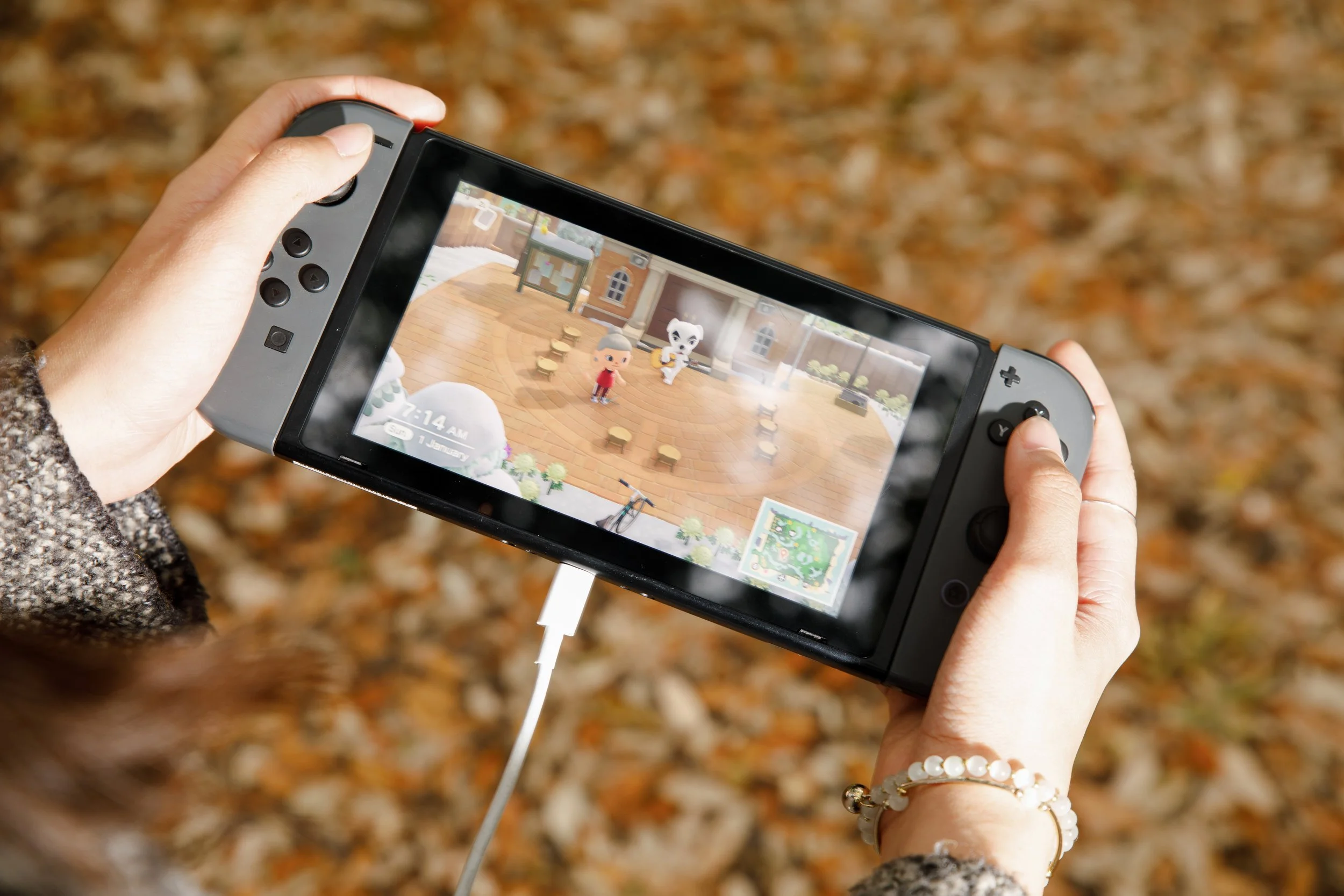Amidst the mist of London's Hyde Park, I sat down with Eva—an Indonesian international student at The London School of Economics and Political Science (LSE)—to unravel a narrative that echoes the experiences of countless women gamers. In her world, the exhilarating highs of gaming meet the disheartening lows of gender bias. Scroll down to step into the vivid landscapes of her gaming experiences, both triumphant and trying.





“Whenever any woman is asked about facing discrimination, it's common for them to acknowledge it. This seems to be a widely shared experience." shared Eva, an Indonesian international student pursuing her master's degree in Media and Communications at London School of Economics & Political Science (LSE). On a misty Friday afternoon, a weathered bench in London's Hyde Park provided an idyllic backdrop as we embarked on an exploration of her journey as a female gamer, dissecting both heartening and disheartening experiences.
Recounting an incident during an online multiplayer session of Overwatch, Eva narrated a scene all too familiar to female gamers worldwide: the palpable tension that arises when one's gender is revealed. "We were all just having a good time, and then, when I spoke up to point out the presence of an enemy, one of our teammates, who realised I was duo-ing with my male friend, immediately jumped to the assumption that we were a couple." The assumption soon morphed into a crude sexual remark, casting a shadow of discomfort over the once-lighthearted atmosphere. Eva's disappointment lingered as she reflected on how her friend failed to stand up for her, a passive reaction marking the end of their friendship.
It's these very experiences that have driven Eva to often opt for silence or adopt gender-neutral identifiers while gaming, as a shield against the unwelcome spotlight that revealing her gender can bring. With an exasperated chuckle, she replicated the exaggerated exclamations that have become an all-too-familiar soundtrack: "Oh my God, there's a female!” She went on to dissect the nuances of these reactions, and how criticism seems to intensify, and tempers flare more easily in her presence. "Mistakes are a part of everyone's experience, and typically, we engage with individuals of similar skill levels. However, it appears that there's a tendency for them to exhibit more frustration towards women." She also shared her experiences of online flirtation, revealing the blurry line between harmless banter and unsettling behaviour. Despite these challenges, she remained optimistic that the landscape has transformed over the last five years. "I've observed a positive change recently when it comes to interacting with more amicable teammates, including men. It appears that various gaming companies and prominent voices in the community are giving more attention to these issues, resulting in heightened awareness and improved conduct among gamers. This positive evolution has even allowed me to forge connections and friendships with some of my teammates. I’m lucky enough to be in this position, knowing that others might not experience the same — therefore, we try to do our best to make the gaming experience a comfortable place for everyone despite their identity," she asserted.
Gaming, for Eva, has been a lifelong companion, tracing back to her childhood in Indonesia, with a PlayStation 2 gifted by her parents when she was around 8 years old. The solitary hours spent at home, a consequence of living far from friends during her elementary years, found solace in life simulation and farming games. Her retrospective gaze reveals an acknowledgement that some of these experiences were "inappropriate" for her age. This is because “In Indonesia back then, many parents didn't pay much attention to game ratings and warnings. Unfortunately, there wasn't as much awareness about video game literacy compared to Western countries, where age-appropriate ratings are prominently displayed and taken into consideration." But this is what allowed her early access to her first love, "Ever since I started playing The Sims on Playstation 2, I’ve become an addict since then. I buy every single series of The Sims afterwards, and the same goes for Harvest Moon. Those hours of play weren't just about passing the time; they were moments of pure joy and imagination."
While studying in London, Eva's gaming activity has witnessed ebbs and flows, coinciding with her academic commitments. The distance from her gaming setup back in Indonesia led her to adopt a more laid-back approach, playing relaxing "chill games" like Stardew Valley on her Steam account or Animal Crossing and The Legend of Zelda on her Nintendo Switch during free moments. Her return home during the summer holidays marked a stark transformation, with gaming becoming a ritualistic part of her daily routine. "Every morning, I hop out of bed, craving the familiar comfort of my PC and the freedom it offers to dive into video games. I'm pretty much gaming every day. It's become quite the routine!" she confessed. Eva's gaming landscape was not just about solo adventures; it also served as a bridge to her closest friends. Gaming, particularly during her visits back home, emerged as a form of socialisation, allowing her to bond with friends over online multiplayer games like Overwatch. It became a respite from the rigours of university life, comparable to how others unwind with Netflix or TikTok.
The conversation ventured into representation, an arena where Eva's perspective shone with nuance. A few characters stand out among the digital cast, holding a unique place in her heart. “It's tough to pick just one, but I really admire Ciri from The Witcher series and Aloy from Horizon Zero Dawn. They're both incredibly brave and strong. Additionally, I resonate with D.va from Overwatch, maybe because she's both Asian and female, much like myself. With the limited representation of Southeast Asian females in gaming, discovering a character like D.Va, who shares some common traits with my own identity, holds a significant meaning for me." Eva enthused. While she acknowledges the significance of seeing oneself in the characters one plays, she also underscores the role of age in shaping this relationship. "Perhaps it's due to my age, or maybe it's a shift that comes with growing older, but now I personally find that I don't form the same connections with characters or idolise them as I used to," Eva muses. Her words illuminated the changing dynamics of identification as gamers mature from passive consumers to critical thinkers.
For Eva, the conversation doesn't stop at the individual level. She's a vocal advocate for the broader discourse surrounding diversity and inclusion within the gaming community. "Taking a closer look, based on my personal opinion and experience, it becomes evident that the challenges aren't limited solely to women as a collective, but rather extend disproportionately towards women who belong to minority groups," Eva asserts, echoing the concept of intersectionality. Intersectionality emphasises how various aspects of identity, such as gender or race, intersect and can compound discrimination. This lens, honed through her academic journey, has fortified her stance and encouraged her to champion more comprehensive representation that encompasses the diversity of female experiences. As a female gamer hailing from Southeast Asia, she has embarked on a personal journey to assert her presence within a predominantly male-dominated space. In her own quiet yet impactful way, she is carving a path for future gamers who, like her, seek not just pixels on the screen but reflections of themselves.